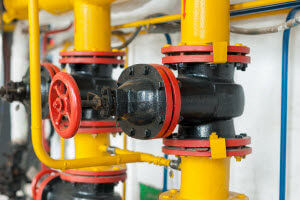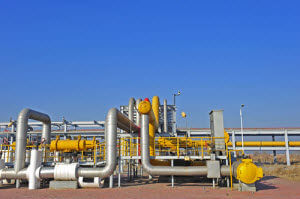How to Improve Control Valve Performance in Your Plant
Control valves are one of the leading factors in plant efficiency. They’re designed to keep systems operating smoothly and safely. However, with time, a valve’s performance can plunge. Luckily, there are ways to prevent that and optimize its performance.
Here are some of the ways that you can improve control valve performance in your plant.
Minimize Contamination
 Control valves are one of the leading factors in plant efficiency. They’re designed to keep systems operating smoothly and safely. However, with time, a valve’s performance can plunge. Luckily, there are ways to prevent that and optimize its performance.
Control valves are one of the leading factors in plant efficiency. They’re designed to keep systems operating smoothly and safely. However, with time, a valve’s performance can plunge. Luckily, there are ways to prevent that and optimize its performance.
Here are some of the ways that you can improve control valve performance in your plant.
Minimize Contamination
Most control valve issues stem from contamination damage. When air flows through the valve, particles combine with moisture and oil droplets and form a substance that builds up in the valve’s orifice. This can lead to unreliable valve operation as well as issues with the pneumatic signal.
Avoiding potentially damaging air in your plant can, at times, be impossible. However, there are ways to minimize the effects of dirty air. One option would be use an inline filter upstream of the control valve for optimum performance and longevity.
Preventing Damage from Vibrations
 For a control valve to work properly, the linkage within the assembly must provide feedback on the valves’ position so the control instrument can control it accurately. Unfortunately, vibrations that occur around the assembly can cause damage and severe wear and tear to the linkage. This can make it fail in providing the necessary feedback.
For a control valve to work properly, the linkage within the assembly must provide feedback on the valves’ position so the control instrument can control it accurately. Unfortunately, vibrations that occur around the assembly can cause damage and severe wear and tear to the linkage. This can make it fail in providing the necessary feedback.
Proper Monitoring and Diagnostics
Ensuring immediate maintenance is key to improving any valve’s operation in your plant. There are many technologies available that can be used to deliver the diagnostic information needed to monitor the performance of the control valve in your plant.
With the information gathered from these technologies, plants can understand exactly how the valve is performing and spot any minor issues. They can then provide the right services at the best times to avoid valve failure. Best of all, this prevents unanticipated malfunctions and downtime.
Choosing the Right Control Valve
According to an article in Valve Magazine, the control valve is critical to plant optimization but only when the right valve is used. To ensure the performance for your valve and your plant, it’s important to make sure that you choose the right valve.
To do that, you must consider what type of system you’re operating. Some control valves are made with material specifically designed to work with certain applications. On top of that, the control valve must be the right size for the pipe. There are a variety of other factors you must consider to find the right valve for your plant. To learn more, contact CPV Manufacturing.
Above all, once you select the right control valve, perform routine performance tests and audits to stay on top of its condition. These tests can give you information on possible control issues so you can better prevent decreases in performance.
The control valve is critical to any plant’s operation, so follow the tips above to improve and maintain your control valves’ performance.
Contact us to learn more about the control valves and other products offered at CPV Manufacturing.

